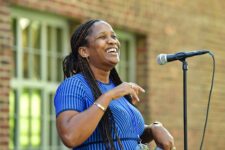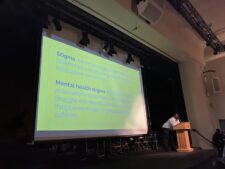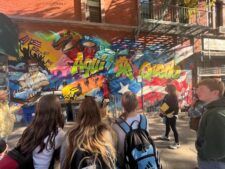On a Thursday morning in October, Fieldston Upper students gathered in the auditorium for a very special Community Curriculum assembly. Community Curriculum is “focused on developing the skills you might need to contribute to making a more just, inclusive, and ethical future,” explains Fieldston Upper Diversity, Equity, and Inclusion (DEI) Coordinator Noah Arhm Choi. Community Curriculum takes several forms at the Ethical Culture Fieldston School, whether during assemblies, classroom discussions, or in smaller break-out groups.
This assembly was especially exciting for students and faculty, as it featured a special guest, Dr. Elizabeth Alexander, who wrote “The Trayvon Generation,” this year’s Fieldston Upper all school read. When explaining why the English Department chose “The Trayvon Generation,” Department Chair, Dr. Alwin Jones, explained that, “we found Dr. Alexander’s work to be a brilliant, multi-genre collection aiming to provide hopeful examples of how artists have used their art forms to ask and answer questions about art and activism, social justice, racism, parenting, the digital age, and the list goes on.”
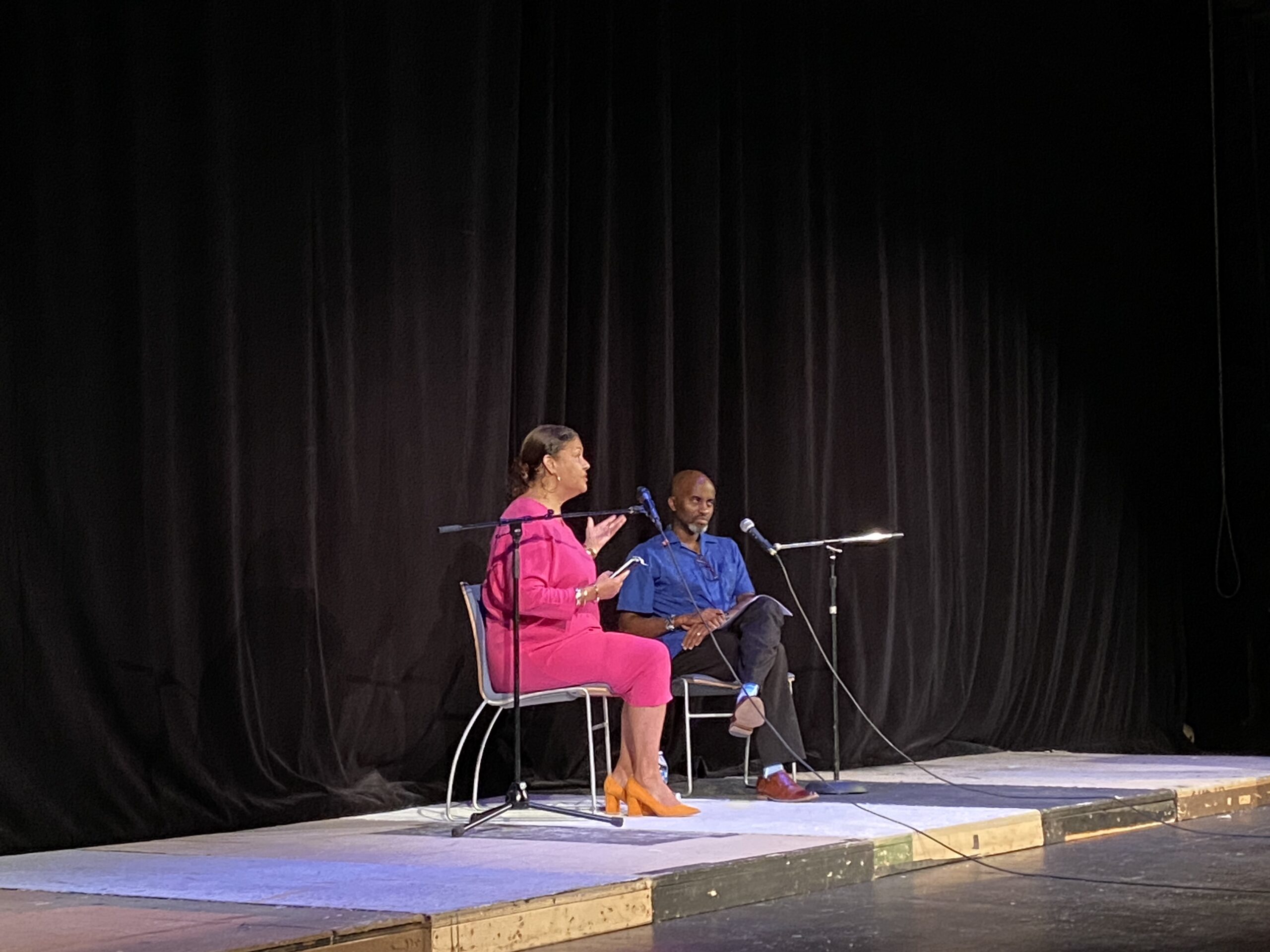
Dr. Alexander wrote “The Trayvon Generation” to help young people, especially Black and brown people, who have experienced or witnessed tremendous violence, either directly or in the media. The book features poetry, essays, and visual art, and Dr. Alexander curated the collection as a way for young people to process their pain and also as a tool for moving forward. “Art — by which I mean poetry, dance, film, painting — is the language of the truth to me,” she said. “Art is a superpower because it can make people feel; it can make people act because they feel.”
The assembly featured a conversation between Dr. Alexander and Dr. Jones, a reading from “The Trayvon Generation,” and a Q&A featuring Fieldston Upper students. To begin, Dr. Alexander explained her family’s history with the School — both of her parents attended ECFS, as well as her two children — and she thanked Dr. Jones for mentoring her sons while they were students. “What this School stands for — its history, its legacy, its justice commitments — is why I chose to send my children here,” she said.
During the assembly, Dr. Alexander and Dr. Jones discussed the relationship between teaching, activism, and art. Dr. Alexander sees teaching and the classroom itself as foundational to leading an ethical life. “The sacred opportunity of teaching is that every classroom is a community. The ethics, respect, learning, and risks you take give you tools to take out into the rest of your lives and the larger society.”
Dr. Alexander explained how she sees ethics and activism beginning at the micro level in the classroom and expanding outwards. “Activism starts in the smallest unit. It starts with your intimate relationships — your family, your classroom, your team — and then the circles move out. Nobody is dying from having hard conversations. The ability to be in a room and talk about hard things is something we can do. The classroom proves it to me at its highest level.”
Following the conversation between Dr. Alexander and Dr. Jones, several students took to the stage to ask questions. One student asked: “What do you think the future of ‘The Trayvon Generation’ is?”
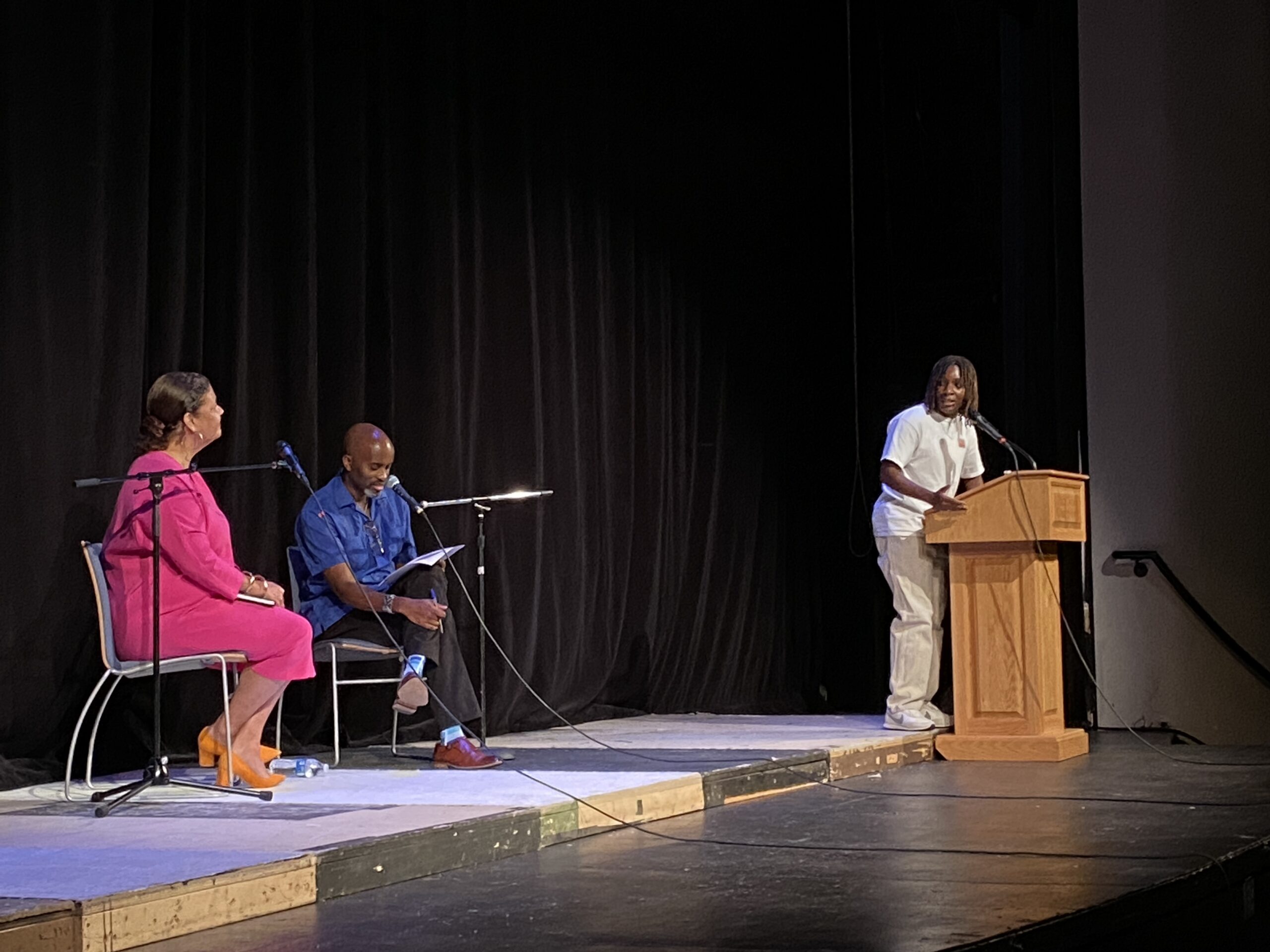
Dr. Alexander responded quickly: “You will show us the future,” she said. She left the students with one last message: “No matter how wonderful your school, you have to read rigorously and explore rigorously on your own. You must follow your curiosity. You must work harder than your homework.”
At the end of the assembly, students, faculty, and staff presented Dr. Alexander with several gifts to show their appreciation for her time and her work — a beautiful bouquet of flowers, a framed Community Curriculum poster signed by students and faculty, and copies of the “The Trayvon Generation” lesson plans used by Fieldston Upper teachers in their classrooms. Following the assembly, the School offered an affinity group space for Black students to speak with Dr. Alexander in a smaller setting.
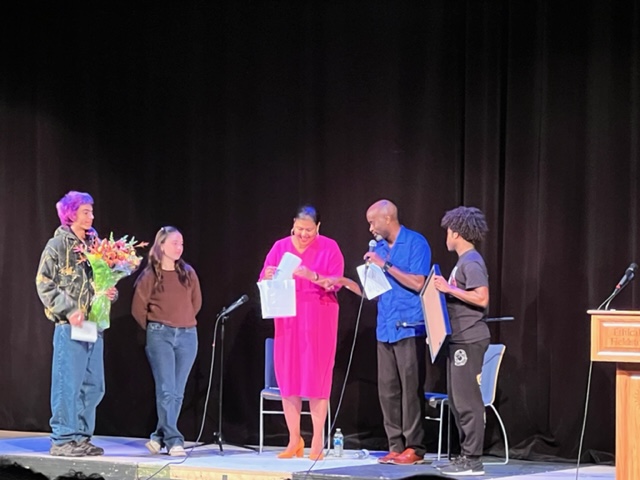
Dr. Elizabeth Alexander’s visit to ECFS during the Community Curriculum assembly offered Fieldston Upper students, faculty, and staff the opportunity to gather, reflect, and continue developing the necessary skills to go out into the world and change it for the better. The Ethical Culture Fieldston School makes it a priority to offer programming that is challenging, relevant, and — above all else — ethical.

